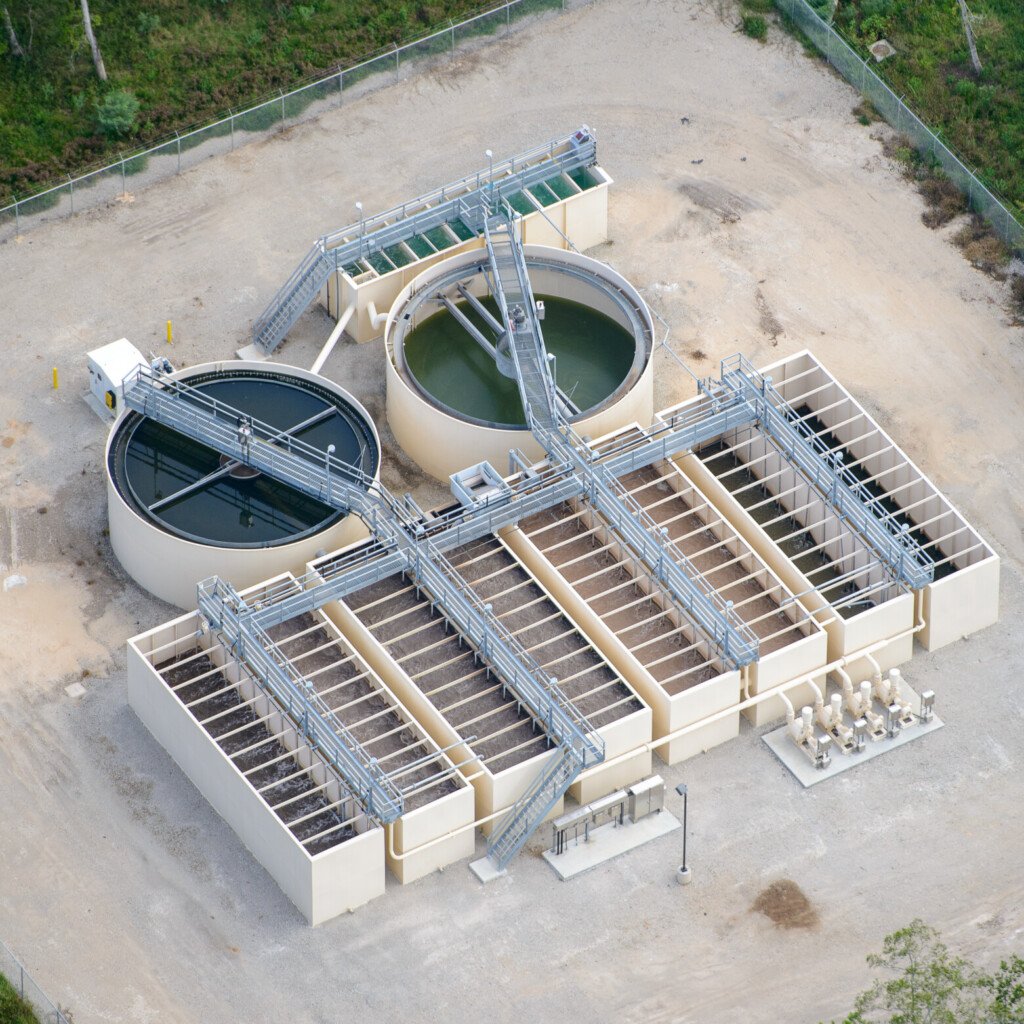Closing Georgia’s Wastewater Gap Without Raising Local Taxes
Leasing and Water-as-a-Service® can provide a prompt solution for both rural and metropolitan communities
Georgia’s wastewater infrastructure recently earned a C- grade from the American Society of Civil Engineers, a sign of decades of underinvestment. Utilities face compliance deadlines, rising costs, and worn-out assets, but voter reluctance and limited debt capacity make it nearly impossible to raise the money needed for modernization.

Decentralized wastewater systems scale with population growth, protecting water quality and ensuring compliance for both rural and metropolitan areas. Photo credit: Contributed
One challenge is that sewer systems are struggling to keep pace with rapid development, particularly in the Atlanta metro area. And, in rural communities, small plants and failing septic systems endanger public health and limit opportunities for economic development. Georgia needs faster, more flexible approaches to water infrastructure to meet today’s growth and compliance pressures.
Why Georgia’s Funding Tools Can’t Keep Pace

Compact decentralized wastewater treatment plants like this can be installed close to where growth is happening, reducing the need for miles of new pipework. Photo credit: Contributed
Georgia communities often look first to municipal bonds, or state and federal grants, but these tools rarely cover the full cost of needed infrastructure. Bond packages can take years to assemble and leave taxpayers with long-term obligations.
Federal and state programs offer help, but many municipalities struggle to qualify or must wait too long before funds arrive. Even when money is secured, the traditional design-bid-build process adds more delay and exposes projects to cost overruns.
Smaller communities also face the challenges that come with having to attract, hire, and retain in-house staff to plan, permit, and operate advanced systems.
The result: traditional funding methods often leave critical projects stalled while demand keeps rising.
Leasing and Water-as-a-Service®: Faster, Flexible, Debt-Free
Leasing provides a way for Georgia communities to add wastewater capacity quickly without straining balance sheets. Instead of waiting for years, utilities can commission scalable, decentralized systems in months.
Georgia treats lease payments by governments as operating expenses, not debt, so leasing doesn’t diminish bonding capacity. A municipality or county can enter into a lease, receive the wastewater infrastructure it needs, and then proceed with other bond issues for school, transportation, or public safety.

Factory-built treatment units arrive on site ready to connect, allowing Georgia municipalities to add capacity quickly and predictably. Photo credit: Contributed
While leasing keeps O&M options open, Water-as-a-Service® bundles design, construction, operations, and maintenance into a streamlined, single-partner experience with build-own-operate, build-own-operate-transfer, and other contracts for both public and private customers. WaaS® agreements may be structured to preserve bonding capacity. With a single accountable partner, it’s simple for communities to secure both infrastructure and the expertise to run it. Plants are delivered with guaranteed compliance to Georgia EPD and national EPA standards, giving leaders confidence they can meet deadlines while keeping projects on track — without new debt or new local taxes.
What Georgia Communities Gain
Leasing and WaaS® deliver tangible advantages for Georgia communities. Taxpayers gain relief because utilities can add capacity without new local taxes or new debt. Developers benefit because projects move forward without waiting for central plant expansions. Both can scale modular plants in phases as populations grow. Rural counties that struggle to recruit and retain operators gain professional oversight through Water-as-a-Service®, ensuring regulatory compliance and reliable performance.
 Across the state, these models protect water quality, keep growth on track, and give communities practical tools to address urgent needs without overburdening local resources. They also help safeguard iconic waterways such as the Chattahoochee, Savannah River, and Georgia’s coastal estuaries — vital assets for the state’s economy and environment.
Across the state, these models protect water quality, keep growth on track, and give communities practical tools to address urgent needs without overburdening local resources. They also help safeguard iconic waterways such as the Chattahoochee, Savannah River, and Georgia’s coastal estuaries — vital assets for the state’s economy and environment.
Georgia doesn’t have to choose between growth and new taxes. Seven Seas Water Group offers proven, flexible models to modernize wastewater systems quickly and affordably. Explore Georgia solutions.
Seven Seas Water Group provides more than 20 billion gallons of water annually across the Americas. Specializing in decentralized Water-as-a-Service® solutions, Seven Seas designs, builds, operates, and upgrades facilities to optimize public-private risk transfer and address global water and wastewater infrastructure challenges for diverse sectors.
Erik Arfalk is the Senior Vice President of Business Development and Marketing at Seven Seas Water Group. With over 20 years of international strategy and business development experience from companies like GE, Atlas Copco, and Fluence, Mr. Arfalk currently leads strategic growth and branding initiatives for Seven Seas.








